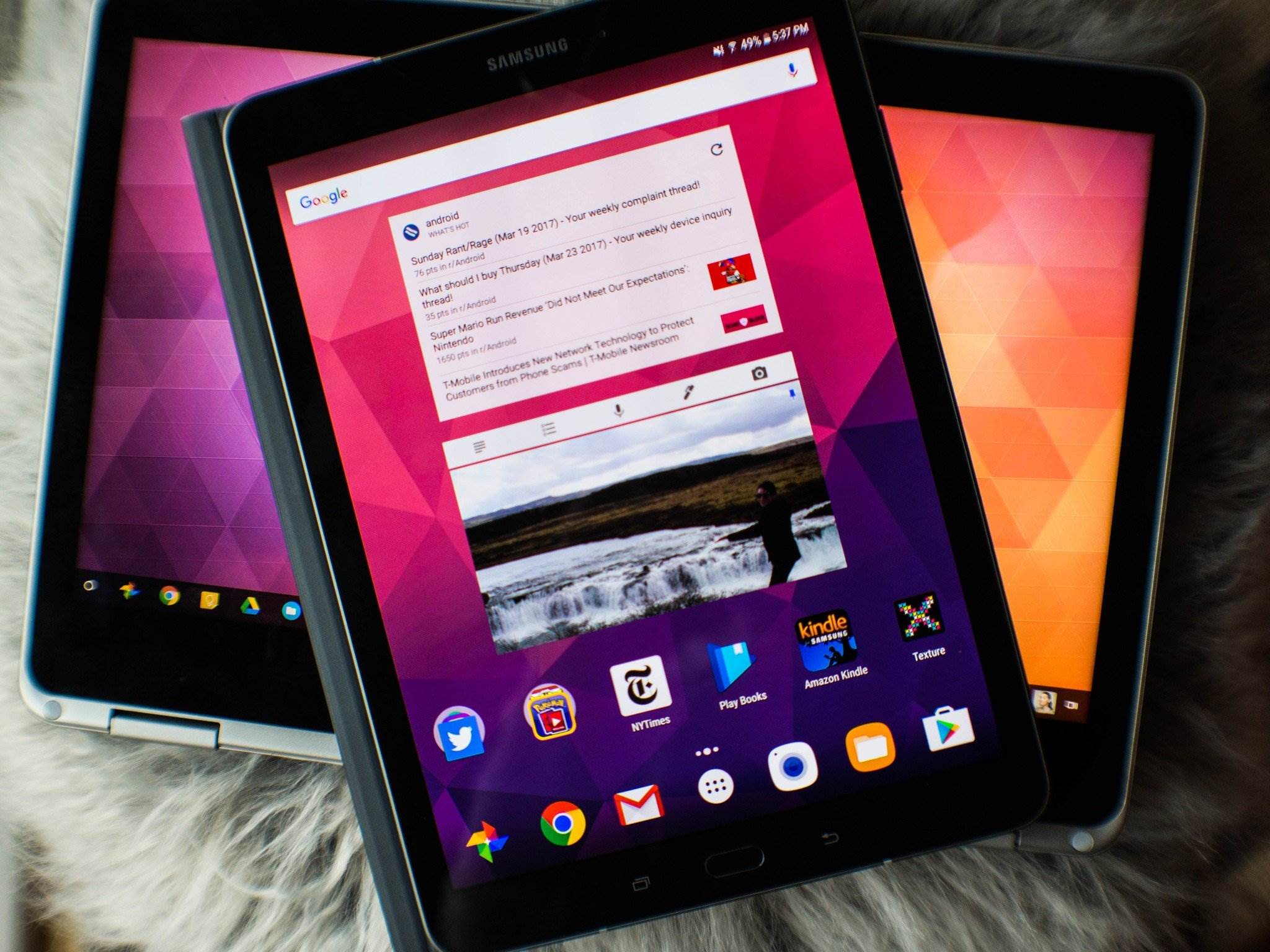
Source: Androidcentral.com
Operating Systems and Ecosystems
Chromebooks
- Powered by Chrome OS, a modified version of Google Chrome.
- Ideal for tasks requiring minimal processing power like browsing, email, and using Google Docs.
- Known for fast boot times and seamless integration with Google's suite of apps.
Tablets
- Can run Android, iOS, or Windows.
- Android tablets offer a wide range of apps through the Google Play Store.
- App availability varies depending on device specifications.
Design and Portability
Chromebooks
- Resemble traditional laptops with built-in keyboards and trackpads.
- Screen sizes range from 11 to 17 inches.
- Suitable for tasks requiring a larger display, such as video conferencing or document work.
Tablets
- Sleek, lightweight, and primarily touchscreen devices.
- Designed to be held like a book for an immersive experience.
- Ideal for reading e-books, watching videos, or browsing on the go.
Performance
Chromebooks
- Lightweight and efficient Chrome OS allows for faster boot times and smoother performance.
- Even budget-friendly models offer a responsive user experience.
- Optimized battery life for all-day use.
Tablets
- Performance varies by brand and model.
- High-end tablets like iPad Pro or Samsung Galaxy Tab S-series offer powerful processors.
- Budget-friendly tablets may have slower performance for resource-intensive applications.
Features and Productivity
Chromebooks
- Offer a range of ports including USB-C, USB-A, Ethernet, HDMI, and audio jacks.
- Larger screens suitable for tasks requiring a bigger display.
- Robust productivity features like file management, office apps, and extensions.
- Regular security updates for up to eight years.
Tablets
- Limited ports, usually only a USB-C charging port and headphone jack.
- Smaller screens ranging from 7 to 13 inches, enhancing portability.
- May require adapters or wireless connectivity for certain peripherals.
Cameras and Multimedia
Chromebooks
- Typically come with a single user-facing camera.
- Better suited for streaming music and videos through speakers or external speakers.
- Support for Google's Chromecast technology.
Tablets
- Usually feature two cameras, one front-facing and one rear-facing.
- High-end models offer better quality cameras, ideal for tasks beyond basic video conferencing.
Software and App Ecosystem
Chromebooks
- Run on Chrome OS with access to the Google Play Store for Android apps.
- Some apps may not be compatible with all Chromebook hardware.
Tablets
- Offer a more extensive app ecosystem depending on the operating system.
- Android tablets provide access to the Google Play Store.
- iOS tablets offer exclusive apps through the App Store.
- Windows tablets can run a wide range of apps from the Microsoft Store.
Keyboard and Mouse Support
Chromebooks
- Many models come with detachable keyboards or screens that fold 180 degrees.
- Enhances productivity capabilities.
Tablets
- Third-party keyboards are available but can be pricey.
- Some tablets offer stylus support for tasks like note-taking or drawing.
Battery Life
Chromebooks
- Generally offer longer battery life, with most models lasting over 10 hours.
- Ideal for users needing a device that can last all day.
Tablets
- Battery life varies depending on the model.
- High-end tablets may offer battery life similar to Chromebooks.
- Budget-friendly models might have shorter battery life.
- More portable due to smaller size and lighter weight.
Price
Chromebooks
- Generally more affordable, with prices ranging from around $200 to $1,000.
- More accessible option for many users.
Tablets
- Prices range from around $400 to over $2,000 depending on brand and model.
Making the Right Choice
Choosing between a Chromebook and a tablet depends on specific needs and preferences. Chromebooks offer a traditional laptop experience with a focus on productivity, robust features, and better battery life. Tablets provide unmatched portability and multimedia capabilities, ideal for on-the-go use. Understanding these differences will help make an informed decision that best fits your lifestyle and computing needs.
